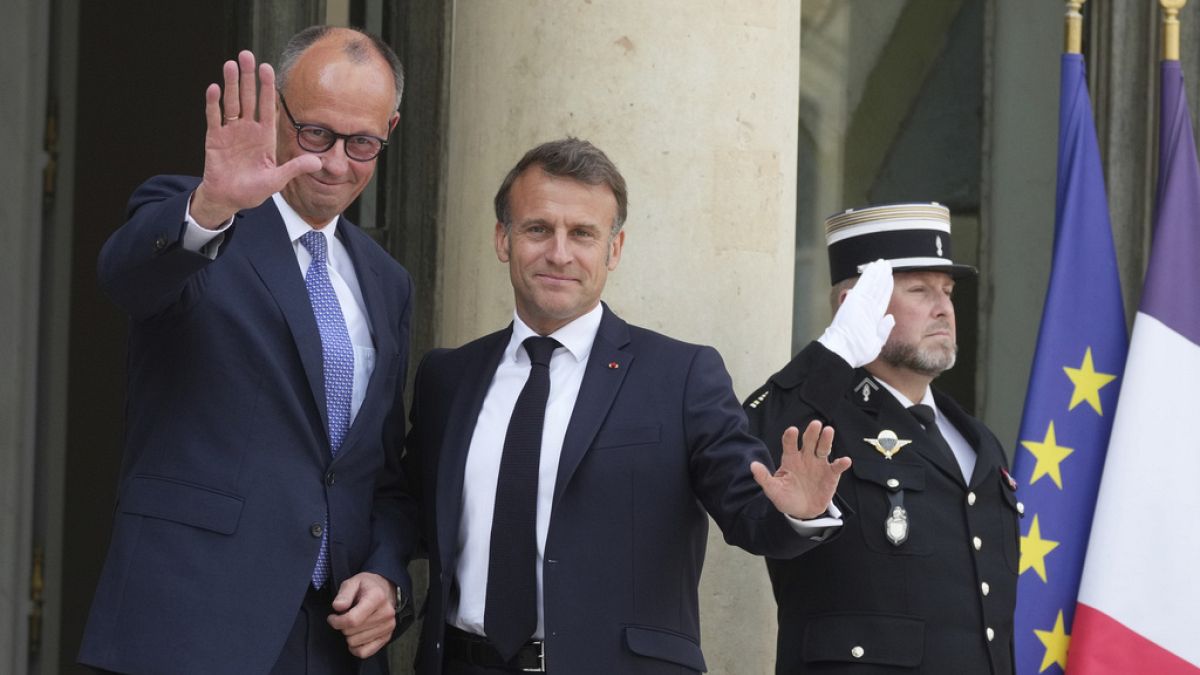In keeping with tradition, Germany’s newly elected Chancellor Friedrich Merz made his first official visit abroad to France on Wednesday, hoping to launch a new chapter in the Franco-German relationship.
The trip’s symbolic significance was clear: it renewed what has often been called the EU’s “Franco-German motor”.
The most significant announcement from the joint press conference between Merz and French President Emmanuel Macron was the creation of a Franco-German Defence and Security Council, stating that both nations intended to “respond together to the challenges that Europe faces” and “act hand in hand.”
Regarding Moscow’s ongoing war in Ukraine, Merz confirmed plans to visit Kyiv in the coming weeks, stressing a goal of “bringing about a lasting ceasefire and a peace agreement with Russia.”
While cautious about committing to troop deployments, Merz said Germany and France would offer “security guarantees” to Ukraine once a lasting ceasefire and peace treaty are concluded.
Merz insisted that this can only be accomplished with a more robust commitment from the United States.
When asked about sending long-range Taurus missiles to Ukraine, the French leader responded: “Let’s say as little as possible. Ambiguity is the best thing for the Ukrainians.”
On the thorny subject of nuclear deterrence, Germany’s new chancellor said that he wanted to “discuss with France and Great Britain” the issue on the European continent.
This discussion is “seen explicitly as a complement to what we already have with our American partners within NATO”, he added.
Paris hopeful over new chancellor
For Merz, the 69-year-old conservative and leader of the Christian Democratic Union (CDU), this visit was also a chance to reset the tone after a rocky start to his chancellorship.
Merz failed to be elected in the first round of the voting in the German Bundestag, an awkward stumble that has drawn scrutiny at home and abroad.
But Paris is striking a hopeful tone. Merz may prove a more aligned counterpart for Macron than his predecessor, Olaf Scholz.
Merz’s decision to ease Germany’s strict fiscal rules, particularly to bolster defence spending, has been welcomed in Paris.
Merz’s more defiant stance against US President Donald Trump also aligns with Macron’s longstanding push for greater European autonomy.
Still, both leaders remain divided on several core issues, including the Mercosur trade agreement.
Merz, like Scholz before him, continues to back liberal trade policies, unlike France’s more protectionist tone.
During the press conference, the French leader said: “We’re in favour of trade agreements if they protect European producers.”
However, Merz said that the European Union must “quickly” ratify the free trade agreement between the EU and the Mercosur countries.
Read the full article here


